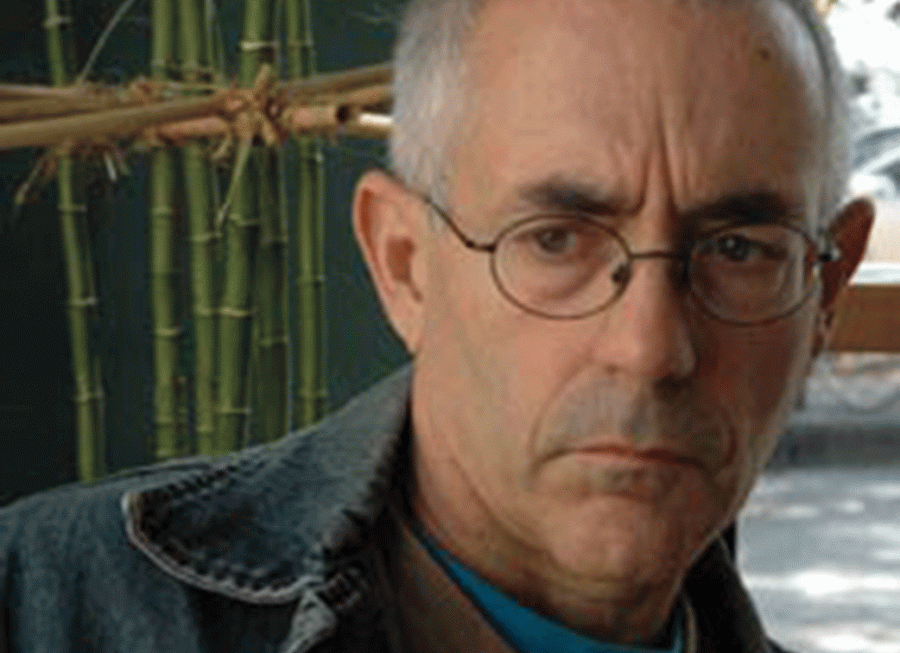Vitalis Discusses Race in the Changing Field of IR
Professor Robert Vitalis from University of Pennsylvania discussed how International Relations has been affected by issues of race.
The Department of Peace & Conflict Studies (PCON) hosted a lecture on Thursday, February 4 by Robert Vitalis who spoke on the critical role of race in the formation of the discipline of international relations (IR). In his talk titled “White World Order, Black Power Politics: The Birth of American International Relations,” Vitalis, a political science professor at the University of Pennsylvania, also discussed the often overlooked contributions of black scholars to IR theory.
Vitalis was introduced by George R. and Myra T. Cooley Professor of Peace & Conflict Studies and Professor of Georgraphy Dan Monk, who equated Vitalis and his critical analysis to the child who dared to tell the Emperor that he was not clothed in the fable of “The Emperor’s New Clothes.”
Vitalis opened his talk by discussing how the field of IR has been inherently influenced by the issue of race, an argument he further discusses in his recent book, also titled White World Order, Black Power Politics: The Birth of
American International Relations.
“In the first decades of the 20th century, in the United States, international relations meant race relations,” said Vitalis during his lecture. “The reality is that for professors writing during that time… the units and boundaries were, as they imagined back then, biological ones [and not national ones].”
Vitalis argues that the founding arguments of this discipline are directly related to the advancement of whites and are therefore rooted in imperialism and racism. In an attempt to enlighten his audience about the roots of IR and the bias built into its founding principles and analysis, Vitalis pointed to several pieces of evidence. His research reveals that Foreign Affairs, one of the most prestigious modern IR journals, was originally The Journal of Race Development until it was bought by the Council of Foreign Relations. Vitalis also showed examples of several popular IR textbooks in the early 20th century, which contained chapters dedicated to topics such as the risks of miscegenation, and the dangers that places like Harlem, a center of black community and culture, represented. Vitalis explained that such ideas have no clear place in modern discussions of IR, but they are still built in; he also acknowledged most
people’s general discomfort with
his argument.
“That is not how we think about the shape of IR today; but if that’s a surprise to you, I guarantee that the cognitive dissonance is greater the deeper one is invested and identifies with IR as a profession,” Vitalis said.
Another important part of his lecture was highlighting the work done by black scholars at Howard University whose scholarly work was overlooked. Vitalis pointed to the work of Alain Locke, Ralph Bunche, Eric Williams and Merze Tate who taught at Howard University, suggesting that the Howard School of IR represented the most important center of opposition to racism and the focal point for theoretical alternatives during this time period. These scholars were some of the first to argue that race science was a pseudo-science. And yet, Vitalis points out, these theories of Howard University professors and intellectuals remain “terra incognito” in the field of IR.
At the end of his talk and also during the question and answer session, Vitalis emphasized the need for change in the way scholars discuss and teach IR. He also called for an increased emphasis on interdisciplinary studies in order to share academic viewpoints, information and philosophies and to better question “practitioner’s histories,” or histories written by insiders which inherently perpetuate bias.
Senior Jessie Sullivan, a PCON and Middle Eastern studies concentrator, was familiar with Vitalis’ work before she
attended the lecture.
“I read Vitalis’s book for a seminar class during these past two weeks and was absolutely riveted by the concept that so many of our most popular majors and concentrations are rooted in racism and imperialism,” Sullivan said. “While I thought it was telling that his book made almost no reference to women, his historic analysis of the work of black scholars in IR is important and very relevant to our institution.”
Senior Jamie Gagliano, an IR and Latin American studies concentrator, also
commented on the lecture.
“I expected the focus of the discussion to be more on what theoretical or empirical contribution the Howard school made or could have made to IR theory, but the talk was still very interesting. Vitalis was clearly very animated and excited about his work, which was great to see. International Relations has a very particular interpretation of its own history, but clearly the discipline draws on deeper roots than we commonly understand,” Gagliano said.




